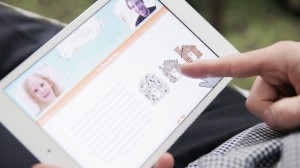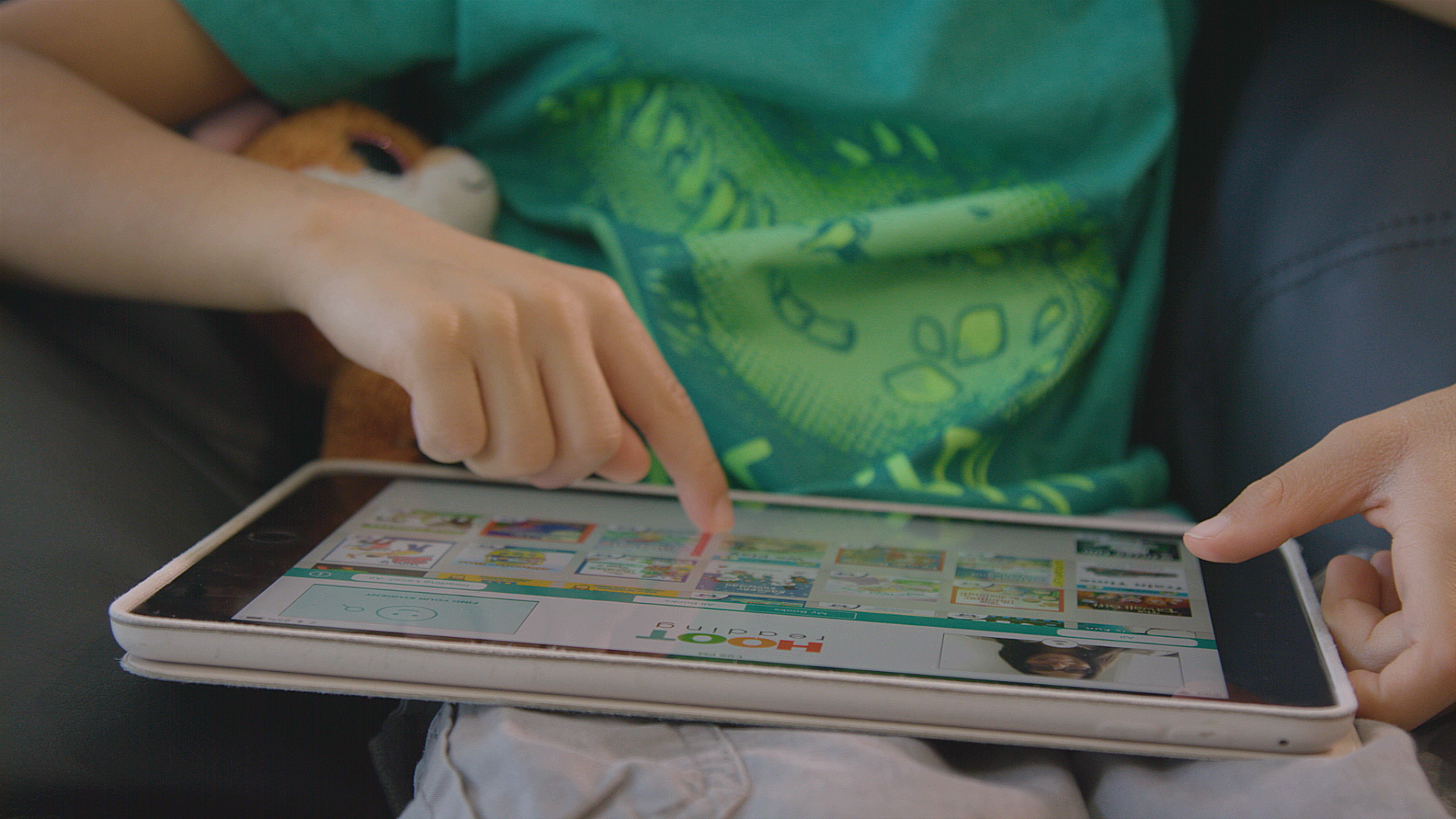Last month, we released Getting a Read on the App Stores, a market scan of literacy apps aimed at young children. We are thrilled to share this commentary from former Cooney Center fellow Carly Shuler, who is the co-founder and CEO of Kindoma, whose apps connect families through video and storytelling. They are currently in the midst of an Indiegogo campaign that will not only help them produce Android versions of their apps, but will allow them to donate a free month of the Kindoma Storytime app to a family that needs it! We hope that you will help us spread the word—small companies that produce high-quality work need our support!
 Recently, the Joan Ganz Cooney Center released Getting a Read on the App Stores, a market scan and content analysis of literacy Apps for young kids. I always look forward to these reports, for a variety of reasons.
Recently, the Joan Ganz Cooney Center released Getting a Read on the App Stores, a market scan and content analysis of literacy Apps for young kids. I always look forward to these reports, for a variety of reasons.
As a parent, the app stores are overwhelming, and I appreciate any guidance on what’s available and how to make choices for my young children that are oh so attracted to these devices. As a kids’ media researcher, I’m fascinated by the evolution of a market that didn’t even exist a mere seven years ago when I was a bright-eyed fellow at the newly formed Cooney Center and we wrote D is for Digital. But this time I approach with a new perspective—that of a developer. And I have to say, it really is an entirely different lens.
The report is jam-packed with interesting facts and figures, and ultimately guides us towards the point that to really move the needle on literacy, an app needs to be:
- Fun: Kids need to want to play it.
- Educational: It needs to have proven to help children learn.
- Discoverable: Parents/educators need to know about it.
- Sustainable: It needs to be funded and ideally self-sustaining.
With my stake as a developer, I approach this report with a new appreciation of how truly difficult it is to achieve this panacea. Let’s be honest—it’s hard to fund, make, and market quality apps that parents and educators can find, that kids want to use, that are proven to help them learn. Really. Frigging. Hard. In fact, I’d challenge you to think of apps that fit this bill. How many can you come up with?
Getting a Read on the App Stores provides an amazing springboard to kickstart the conversation about helping developers create apps that have the potential to move the needle on literacy. Below are the three things that stood out to me as the most important conversation starters if we are hoping to promote apps that are discoverable, self-sustaining, fun, and help kids learn:
- Only 4% of the top 50 paid apps in the sample cost $4 or more. While $4 might seem expensive in this market, where the norm is an expectation of free, this is an important concern for developers, who struggle to create not only quality educational apps, but sustainable businesses.
- Most (71%) top literacy-focused apps for children feature competitive or testing-based activities such as games, puzzles, and quizzes. This is interesting given the movement towards open-ended discovery in education, and—while there will always be a place for apps like these—I hope that the market is willing to try new things.
- Only 2 apps in the sample are explicitly designed to promote joint media engagement (JME), and fewer than 10% allowed users to contact or share content with others. At Kindoma, we are focused on JME at a distance, so this was of a particular interest. I’m not sure if this is an opportunity or a threat. Is this based on lack of demand or lack of supply? For us at Kindoma, this is a crucial benchmark to keep our eye on. More work helping the development community navigate COPPA could have significant impact here.
One of the things I love about Cooney Center reports is that they speak to a multidisciplinary audience, and this report is no different. Given the privilege of this pedestal, here are the recommendations they make that struck me as most important from a developer’s perspective:
Parents: As the report urges, please “give voice to frustration and great finds”. If you love something about our app, tell us. Ideally, tell the world through a positive review. BUT, more importantly, if there is something that you dislike, tell us (in this case, only to us would be preferable!). I know how busy you are, and I understand how frustrating it is when a sign-up flow feels inefficient and how annoying it is when your app crashes. I also know how easy it is to just delete the app and move on. You deserve better. But, if you’ve done your diligence and found an app that is legitimately trying to fill a void for you and your child, please help us improve.
Researchers: The report encourages researchers to “translate and share findings with developers as well as parents and educators”. I’m actually even going to take this a step further and urge you to use us IN your research. Our apps are what’s out there, in the market, being used by kids and families, and, quite frankly, very few developers can afford to do proper research. And, even if we could, we’re not as good at it as you. I can’t speak for everyone, but I can promise you that most developers would be thrilled to have more insight into our products.
And finally, fellow developers: We need to make the good stuff. As the report highlights, there is a “quiet crisis” in early literacy, with two-thirds of America’s children leaving elementary and middle school with distressingly weak reading skills. Let’s be honest: it’s hard to fund, make and market quality apps that parents and educators can find, that kids want to use, that are proven to help them learn. If this is, as the report says, the “Digital Wild West,” than we are the cowboys. Perhaps this is as much self-talk as anything else, but keep at it, comrades. What we’re doing is important.
 Carly Shuler is Co-founder and CEO at Kindoma, the award-winning creator of revolutionary communications apps for kids. Ms. Shuler has over 10 years experience in children’s media and toys, working with leading organizations such as Spin Master and The Joan Ganz Cooney Center at Sesame Workshop. A recognized thought leader in the industry, she has authored a number of renowned reports, including D is for Digital, the iLearn series and The ABC’s of Kids & e-Reading. She holds an MEd in Technology, Innovation and Education from the Harvard Graduate School of Education and a BComm from McGill.
Carly Shuler is Co-founder and CEO at Kindoma, the award-winning creator of revolutionary communications apps for kids. Ms. Shuler has over 10 years experience in children’s media and toys, working with leading organizations such as Spin Master and The Joan Ganz Cooney Center at Sesame Workshop. A recognized thought leader in the industry, she has authored a number of renowned reports, including D is for Digital, the iLearn series and The ABC’s of Kids & e-Reading. She holds an MEd in Technology, Innovation and Education from the Harvard Graduate School of Education and a BComm from McGill.


